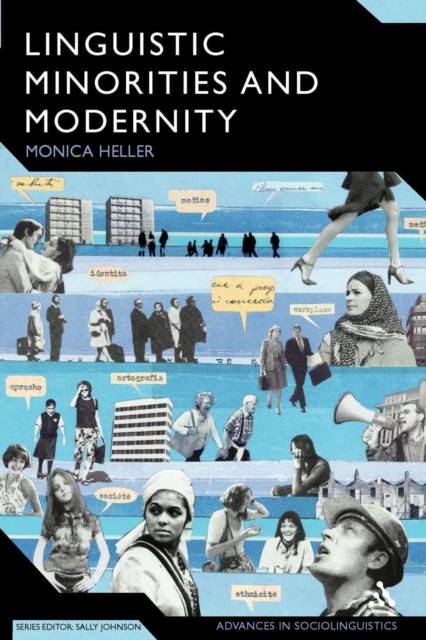
- Afhalen na 1 uur in een winkel met voorraad
- Gratis thuislevering in België vanaf € 30
- Ruim aanbod met 7 miljoen producten
- Afhalen na 1 uur in een winkel met voorraad
- Gratis thuislevering in België vanaf € 30
- Ruim aanbod met 7 miljoen producten
Omschrijving
The subject of this book is linguistic minorities, and how language is used by speakers of languages which are not the main language of communication. This is a core topic for sociolinguists, who examine how language is actually used within a given context. Globalization, migration, and the erosion of nationhood is creating far more linguistic minorities as society becomes increasingly pluralistic. One of the major sites of contact between languages is the school, and this book focuses on linguistic interaction within this educational context. Through a careful examination of the language practices in the daily life of a school, Monica Heller explores issues such as changing language policy, bilingualism, identity, power, ideology and gender from the point of view of the minority speaker. In so doing she provdies a fresh new insight into this important area of sociolinguistics. Linguistic Minorities and Modernity is written in an accessible and lively narrative style, and uses real-life examples and case studies to illustrate the discussions. The text has been revised throughout, and includes a new introduction by the author. The book is suitable for undergraduate and postgraduate students of sociolinguistics and linguistic anthropology.
Specificaties
Betrokkenen
- Auteur(s):
- Uitgeverij:
Inhoud
- Aantal bladzijden:
- 246
- Taal:
- Engels
- Reeks:
Eigenschappen
- Productcode (EAN):
- 9780826486912
- Verschijningsdatum:
- 11/02/2007
- Uitvoering:
- Paperback
- Formaat:
- Trade paperback (VS)
- Afmetingen:
- 161 mm x 234 mm
- Gewicht:
- 376 g

Alleen bij Standaard Boekhandel
Beoordelingen
We publiceren alleen reviews die voldoen aan de voorwaarden voor reviews. Bekijk onze voorwaarden voor reviews.











